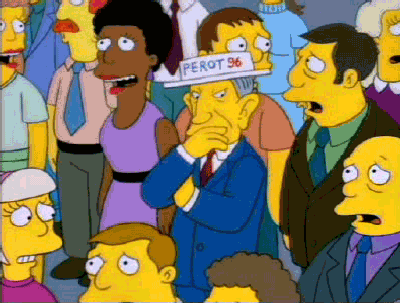Fair Elections and STV
As I write this, Donald Trump is about to win the South Carolina Republican primary even though most people predict he’d lose a two candidate race. The problem can be summed up with this (hypothetical) chart:
| Percentage | First choice | Second choice | Third choice |
|---|---|---|---|
| 33% | Trump | N/A | N/A |
| 22% | Rubio | Cruz | N/A |
| 22% | Cruz | Rubio | N/A |
| 8% | Bush | Rubio | Cruz |
| 8% | Kasich | Rubio | Cruz |
| 7% | Carson | Cruz | Rubio |
Trump supporters tend to be pretty adamant about their candidate, so let’s suppose they wouldn’t bother to vote if he weren’t running. And let’s suppose that Cruz and Rubio supporters would rather have the other candidate rather than Trump. And let’s suppose Bush, Kasich and Carson are stealing votes that would go to one of the leading “not-Trump” candidates. In this scenario, it’s clear that Trump is only in play because the rest of the field is divided. He’d lose to Rubio in a two-candidate race.
This is precisely the sort of paradox that single transferable vote (STV) systems are designed to resolve. While the math can be daunting, the idea is rather simple. Instead of waiting for candidates to drop out, an STV system allows voters to rank their preferences and resolve the voting accordingly. So in the example above, Carson, as the least-supported candidate, would be dropped and his votes would be transferred to Cruz.1 The new tally would be:
| Percentage | First choice | Second choice | Third choice |
|---|---|---|---|
| 33% | Trump | N/A | N/A |
| 29% | Cruz | Rubio | N/A |
| 22% | Rubio | Cruz | N/A |
| 8% | Bush | Rubio | Cruz |
| 8% | Kasich | Rubio | Cruz |
Then the process of dropping the candidate with the least votes would continue until some candidate gets a majority:
| Percentage | First choice |
|---|---|
| 67% | Rubio |
| 33% | Trump |
It’s as simple as that.2
Moderators on Stack Exchange are elected using single transferable vote because we believe it provides the best method for representing the interests of broad and diverse communities.3 Instead of forcing voters to judge whether a candidate might be popular among other voters, the system allows people to vote their preferences without throwing away their vote on losing candidates.
My cousin, Mark Ericson, asked:
Except in proportional states STV wouldn’t be dropping candidates until someone has a majority. It probably would be dropping candidates who don’t achieve sufficient votes to get at least one delegate. What would the results look like then?
I think the answer depends on how the parties want to divide up their delegates. Republicans award some South Carolina delegates to the winner of the entire state and other delegates to the winners of the congressional districts. The Democrats have something called superdelegates who aren’t committed to anyone until the convention. So the presidential primaries are the ultimate in political theater and the parties haven’t really put much time into making them fair.
It turns out the Super Tuesday states require a candidate to earn 15-20% of the vote in order to get a share of the delegates. STV systems can handle this quirk by setting a quota variable. In a two person race, the quota is a simple majority. But it can be set to anything at all if the election rules require it. If set to 20%, the results might look something like:
| Percentage | Candidate |
|---|---|
| 38% | Rubio |
| 33% | Trump |
| 29% | Cruz |
Again, this is hypothetical. This method would be more fair to people who vote for a candidate who just falls short. Their votes transfer up. The existing system doesn’t have any way to account for voters secondary preferences, so there’s an incentive to vote only for people who are reasonably likely to get 20% of the vote.
To simplify the explanation, I’m assuming all of the supporters of Carson would have identical preferences. In reality, other candidates, including Trump, would pick up some of those votes.↩︎
Again, the real world is a bit more complicated because some people would have Trump as their second or third choice over Rubio. There would also be people who leave both Rubio and Trump off their ballots resulting in “wasted” votes. Finally, the party might decide it worthwhile to award delegates proportionally to, say, the top three candidates. On Stack Exchange, we use the more sophisticated Meek algorithm that solves all of these problems.↩︎
Even the fact that we allow our users to select moderators at all is a bit unusual.↩︎
